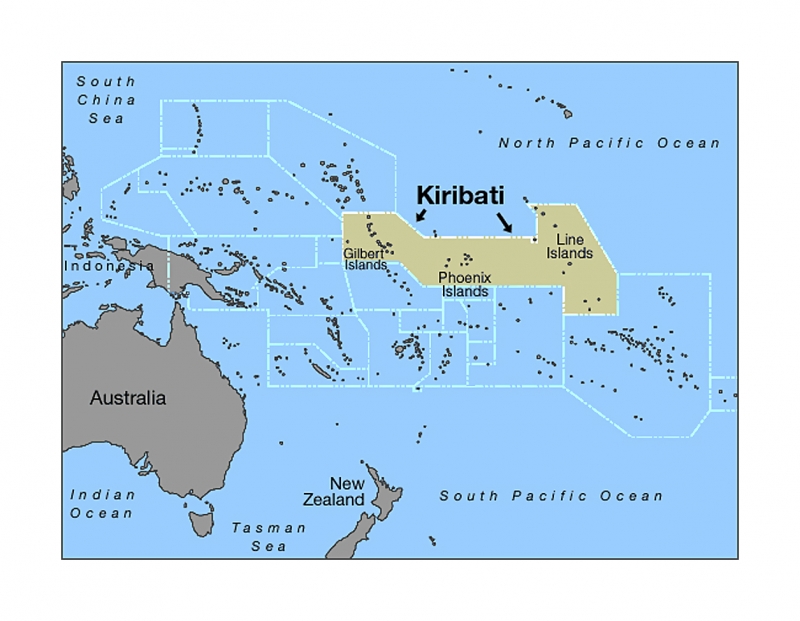The Convention against Torture Pacific Island Inspiration: Kiribati accedes to UN Convention against Torture
Geneva, 25 July 2019: The Convention against Torture Initiative (CTI) welcomes the announcement that the Republic of Kiribati has acceded to the UN Convention against Torture and Other Cruel, Inhuman or Degrading Treatment or Punishment (UNCAT) without reservations. On 22 July 2019, Kiribati became the 6th State party from the Pacific to UNCAT, and the 167th State party globally.

Kiribati’s accession follows the Government’s commitment during its Universal Periodic Review (UPR) in 2015 in which it indicated it would study UNCAT and its capacity to implement the Convention. Kiribati has a robust constitutional framework, prohibiting torture and other ill-treatment, and guaranteeing a range of basic procedural safeguards for arrested and detained persons. Other positive recent developments relevant to UNCAT include the adoption of the Education Act 2013, which prohibits corporal punishment in schools; the Te Rau n te Mweenga Act 2014, which criminalises domestic violence; and the Juvenile Justice Act 2015, which seeks to ensure the protection of children in conflict with the law, setting standards for the youth justice system and keeping children out of adult prisons.
Speaking on the decision to accede to UNCAT, Minister of Justice of Kiribati, Honourable Mr. Natan Teewe, stated:
“In acceding to UNCAT Kiribati confirms its support to the principles of equal and inalienable rights of people, which is the foundation of freedom, justice and peace. Torture is a human right violation. Torture is unacceptable and unjustified. Acceding to UNCAT is a positive step forward.”
Welcoming this important achievement, H.E. Ambassador Nazhat Shameem Khan, Permanent Representative of the Republic of Fiji to the United Nations in Geneva and speaking on behalf of the CTI Core States, said “CTI congratulates the Republic of Kiribati on acceding to UNCAT. It demonstrates that we in the Pacific take human rights protection seriously and as part of the international community, we are committed to preventing and responding to the most serious of human rights violations, those of torture and ill-treatment”. She added: “There is always more work that we can do, but a willingness to accede to UNCAT is moving in the right direction.”
CTI was pleased to support Kiribati in the process of accession, including through their participation in CTI’s high-level regional seminar on implementation and ratification of UNCAT in the Pacific, held from 6-8 February 2019 in Natadola, Fiji, in collaboration with the Regional Rights Resource Team of the Pacific Community and the Universal Rights Group, and funded by the Governments of Denmark and the United Kingdom. Kiribati’s Minister of Justice, Hon. Mr. Natan Teewe, gave a keynote address at the seminar in which he highlighted important measures of law and institutional reform taken over the past years to build a framework that guarantees effective protection and the fair administration of justice.
“Becoming a State party to UNCAT signals Kiribati’s long term commitment to human rights and the fair administration of justice for all its citizens and residents. I extend CTI’s support to the Government of Kiribati and all other Pacific nations on the implementation of UNCAT and to provide relevant technical assistance,” said Dr Alice Edwards, Head of CTI Secretariat.
States that are interested in assistance with ratifying and/or implementing the Convention can get in touch directly with the CTI Core States through their diplomatic representations in Geneva or New York, or via the CTI Secretariat at info@cti2024.org.
Background:
CTI, launched in 2014, is made up of Chile, Denmark, Fiji,* Ghana, Indonesia and Morocco, and is supported by a full-time Secretariat based in Geneva. CTI is based on constructive dialogue, international cooperation and technical assistance. *Fiji joined the Initiative as a Core State in February 2019.
The Universal Periodic Review (UPR) is a State peer review process in which the human rights record of every State in the world is considered as part of the Human Rights Council, based in Geneva. States have the opportunity to respond to recommendations by other States. Of the top five recommendations put to States during the second cycle, two relate to ratifying UNCAT or torture prevention more generally. For more information, see https://www.ohchr.org/en/hrbodies/upr/pages/uprmain.aspx.

